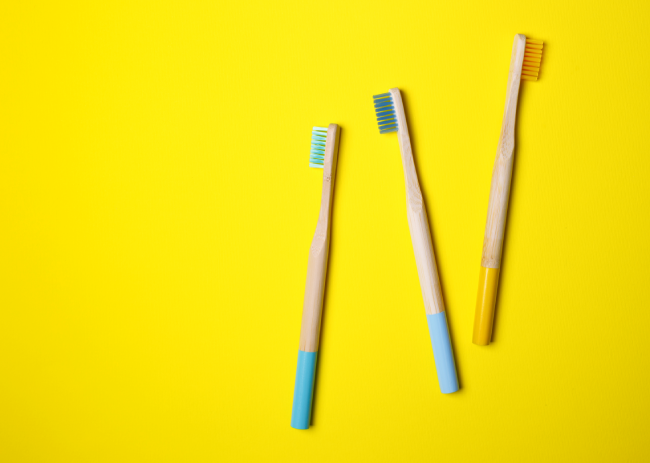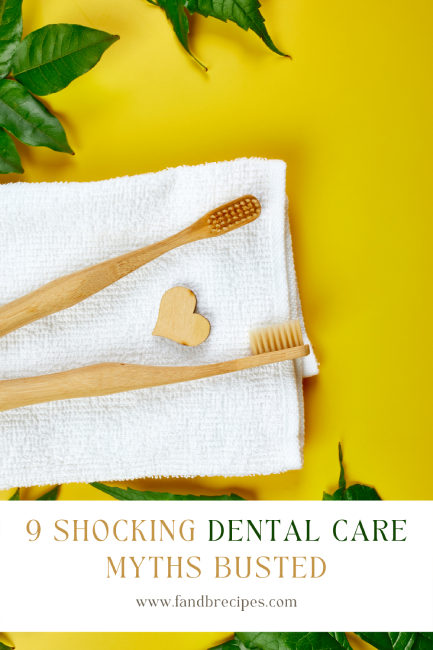9 Common Dental Care Myths Busted
You may think that tooth brushing is a simple task, but there are some myths about it. While many blogs, such as the one by Regenerate, can provide you with in-depth information about mouth care, this article explores nine common dental care myths people have, ranging from the use of different types of toothbrushes to the frequency of brushing.
1. Brushing Your Teeth is Just for Cleanliness
Even if your teeth are clean, they can still be susceptible to damage. Brushing your teeth is essential not just for physical cleanliness but also because it stimulates saliva production, which helps inhibit decay and acid erosion. Furthermore, brushing your teeth reduces bad breath, and not brushing your teeth makes your mouth a friendly environment for bacteria.
2. A Toothbrush With Soft Bristles is All You Need
While brushes with soft bristles are gentle on the gums, they do not remove as much plaque as brushes with medium bristles. In addition, a toothbrush with soft bristles “wags” from side to side, which is good for your gums but bad for your teeth.
It is recommended that you use a medium or hard-bristled brush. The harder the bristles, the more plaque it removes, but it should never cause pain when brushing your teeth.
People with sensitive gums should opt for soft or ultra-soft bristles because they are less abrasive than medium and hard brushes. Medium and hard brushes require more manual dexterity and control while brushing, so the novice should start with a soft bristles brush until they have built up some dexterity.
3. The “Best” Toothbrush Will Keep Your Mouth Healthy and Fresh
There is no “best” toothbrush. It all depends on your preference and what you feel comfortable with. Some people prefer manual brushes, while others enjoy the convenience of an electric brush. The best option for you is whichever one will provide the right amount of pressure and movement to clean your teeth effectively
4. Fluoride Toothpaste Isn’t Important, So Long As You’re Brushing Correctly
Fluoride toothpaste helps to strengthen and protect teeth against damage. Not using any toothpaste can lead to cavities and other problems. Additionally, research has shown that children who use fluoride toothpaste are less likely to develop cavities.
5. You Have to Brush Your Teeth After Every Meal
Brushing too often can damage the enamel on your teeth. Brushing immediately after eating or drinking acidic items can further erode the enamel on your teeth, which weakens them. As such, you should try to brush twice every day.
It is best to brush after breakfast since it removes the plaque that builds up overnight. You should also avoid consuming anything acidic at night because your teeth will be more susceptible to damage. It is also recommended that you wait at least an hour before brushing after eating, drinking, or smoking.
6. Flossing After Brushing is Enough to Keep My Mouth Clean
Flossing is essential for keeping your mouth clean, but it cannot remove surface stains as brushing can. Brushing should still be done at least twice a day in addition to flossing because it removes plaque and other harmful bacteria from between your teeth.
7. The More Water You Drink, The Cleaner Your Mouth Will Be
Water will not clean and protect your teeth on its own. If you just want to hydrate and rinse food off of your teeth, you can do so with any beverage without worrying about damaging your teeth in the process. However, if you want to keep them healthy, you should drink water because it helps to prevent plaque build-up.
8. You Can Clean Your Teeth With Any Toothbrush
There are three different types of toothbrushes: manual, electric, and interdental brushes. Manual toothbrushes are the most common option. Electric brushes are great for ensuring that you are brushing your teeth properly and that you don’t brush too hard. Interdental brushes, such as floss picks, help clean between the teeth.
9. It’s Okay To Use Mouthwash Every Day Because it Doesn’t Contain Fluoride
Fluoride is found in most mouthwashes, and it is essential for protecting your teeth from decay. If you use a fluoride-free mouthwash, you’ll need to brush and floss more than usual to prevent problems such as cavities and gingivitis.




